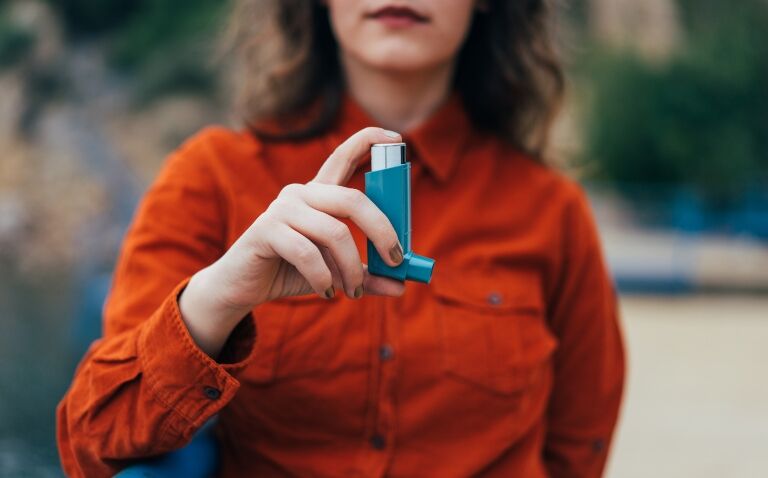Women with asthma are more likely to need fertility treatment to conceive than women without the condition and are also more likely to miscarry, a large Danish study has found.
However, most women with asthma are able to have children, according to the research presented at the European Respiratory Society (ERS) Congress in Vienna, Austria, this month.
Lead author Dr Anne Vejen Hansen, from the department of respiratory medicine at Copenhagen University Hospital, Denmark, said previous research had found women with asthma took longer to become pregnant when undergoing fertility treatment.
Previous research had also showed that women with asthma who succeeded in becoming pregnant were more likely to have used fertility treatment than the general population.
‘But most existing studies focused on women who had become pregnant, so we wanted to examine fertility outcomes on a national scale, to also include those that might not become pregnant at all,’ Dr Vejen Hansen said.
Using a Cox regression model adjusted for age, calendar year and education, the study analysed the reproductive outcomes of all Danish women born between 1976 to 1999 (769,880 women), following them from 1994 to 2017, with a median follow-up of 10.8 years.
Women who repeatedly redeemed anti-asthmatic drugs were classified as having the condition, with asthma severity stratified per 2018 Global Initiative for Asthma (GINA) guidelines.
Overall, 77% of women gave birth over the follow-up period, irrespective of asthma status, the researchers reported.
However, women with asthma experienced a higher degree of foetal loss compared with controls (17.0% vs 15.7%) and used more fertility treatment (5.6% vs 5.0%), researchers reported.
Risk of fertility treatment was significantly higher in women with asthma (HR 1.12), researchers reported.
Furthermore, Dr Vejen Hansen noted women with more severe asthma and those who experienced more flare-ups were especially likely to need fertility treatment.
Women classified as GINA criteria step 4-5 had the highest risk of needing fertility treatment (HR 1.62), while women with three or more prior exacerbations also had an increased risk (HR 1.38).
Dr Vejen Hansen said the drivers behind these associations were unclear, but they could be related to systemic inflammation throughout the body, including women’s reproductive organs.
‘The numbers also show that these same women who redeem asthma medication still have as many live births in the end as women who don’t,’ she said.
‘This suggests that most women with asthma probably do manage to become pregnant and have babies in the end.’
Commenting on the research, Professor Lena Uller, chair of the ERS Airway Pharmacology and Treatment Group, said it was reassuring to see that women seemed to have the same live birth rate regardless of their asthma.
Nevertheless, Professor Uller, who is also head of the Respiratory Immunopharmacology Research Group at Lund University, Sweden, said the study underscored the importance of managing the condition in reproductive-aged women.
‘The fact that the more severe the asthma, the more the problems with fertility, suggests that uncontrolled asthma is the problem and we should be helping women to get their asthma under control,’ Professor Uller said.
Asthma and women‘s fertility: existing evidence
Dr Vejen Hansen and colleagues have previously published a large case-control study showing the proportion of women conceiving by fertility treatment was higher among women diagnosed with asthma than in the general population, with the association particularly pronounced among women aged 35 years and older.
The prevalence of fertility treatment preceding live births was 12.2% among women with asthma compared with 7.7% in the control group, with the association remaining significant after adjusting for a range of factors including age, body mass index and smoking status.
When they assessed fertility treatment after stratifying cases and controls into two age-groups (women <35 years and women ≥35 years), no significant association was found between asthma and fertility treatment in the younger age group.
But among women ≥35 years of age, the prevalence of fertility treatment was 24.8% among women with asthma compared with 13.4% in the control group, which also remained statistically significant after adjusting for confounders.
Dr Vejen Hansen and colleagues now plan to conduct a registry-based study to investigate the possible effect of male asthma on fertility.










